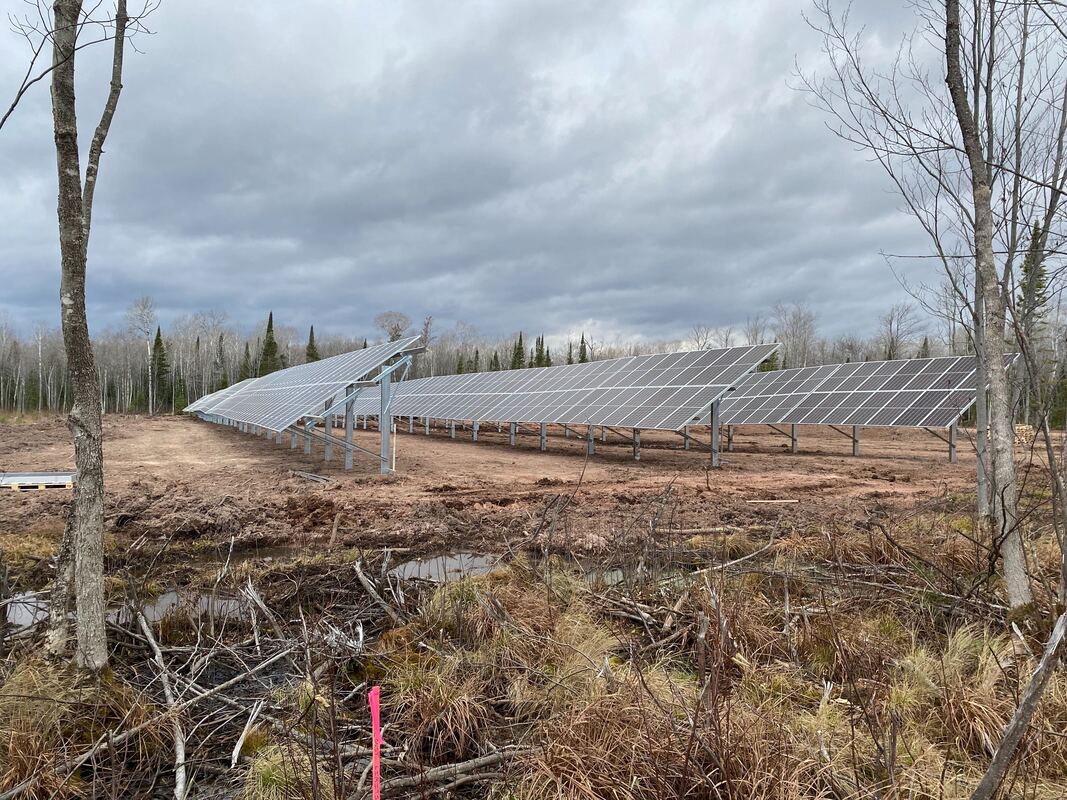On Sept. 24, 2019 the Ashland Daily Press wrote about the upcoming Solar + Storage project at the Bad River Band of Lake Superior Indians. The tribe had received a $1 million grant from the U.S. Department of Energy and was about to embark on a 524kW solar photovoltaic (PV) project coupled with over 1 mega-watt-hours of battery storage. The project would consist of three microgrids and collectively would have more battery storage than any other installation in Wisconsin.
Fast track to 2021 and that project, despite Covid-19 challenges, is on track to be completed in May 2021. A virtual ribbon cutting has been scheduled for May 14th at 2:00pm. The U.S. Department of Energy, Office of Indian Energy and Policy Programs released this news article on May 12th, 2021. The contractor is EnTech Solutions, a division of Faith Technologies based in Neenah, WI. Cheq Bay Renewables formed a consulting team to assist the tribe in project development and implementation. Team members include Madison Solar Consulting and muGrid Analytics of Golden, CO. The consulting team meets frequently to evaluate the project’s progress and will continue to assist the tribe post-commissioning to ensure the cutting-edge system performs as anticipated.
The three microgrids are independent systems that are associated with the tribe’s Health and Wellness Center (300kW of PV), the Waste Water Treatment Plant (200kW) and the Chief Blackbird Administration Building (24kW). Each is grid tied but capable of operating independent of the grid in case of grid outage. The solar PV installations are integrated with battery storage and diesel backup generation which seamlessly and automatically optimize the dispatch of energy for economic as well as resiliency goals.
In July 2022, Bad River continued research into microgrid development with this Wisconsin Office of Energy Innovation OHMs Feasibility Study.
Fast track to 2021 and that project, despite Covid-19 challenges, is on track to be completed in May 2021. A virtual ribbon cutting has been scheduled for May 14th at 2:00pm. The U.S. Department of Energy, Office of Indian Energy and Policy Programs released this news article on May 12th, 2021. The contractor is EnTech Solutions, a division of Faith Technologies based in Neenah, WI. Cheq Bay Renewables formed a consulting team to assist the tribe in project development and implementation. Team members include Madison Solar Consulting and muGrid Analytics of Golden, CO. The consulting team meets frequently to evaluate the project’s progress and will continue to assist the tribe post-commissioning to ensure the cutting-edge system performs as anticipated.
The three microgrids are independent systems that are associated with the tribe’s Health and Wellness Center (300kW of PV), the Waste Water Treatment Plant (200kW) and the Chief Blackbird Administration Building (24kW). Each is grid tied but capable of operating independent of the grid in case of grid outage. The solar PV installations are integrated with battery storage and diesel backup generation which seamlessly and automatically optimize the dispatch of energy for economic as well as resiliency goals.
In July 2022, Bad River continued research into microgrid development with this Wisconsin Office of Energy Innovation OHMs Feasibility Study.

